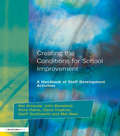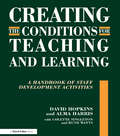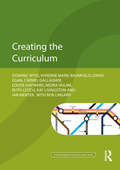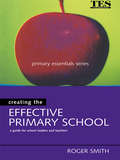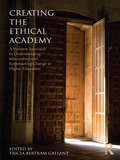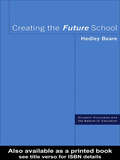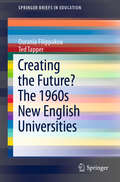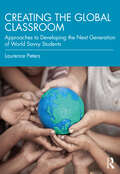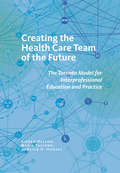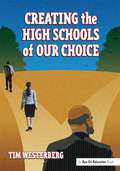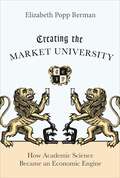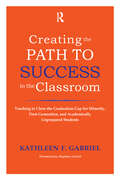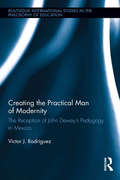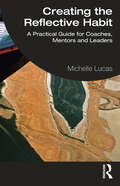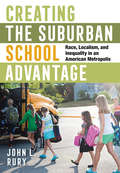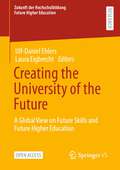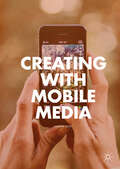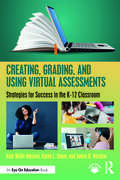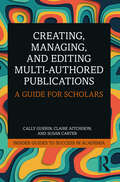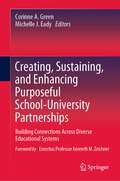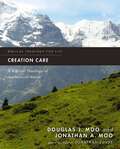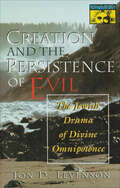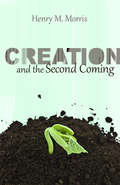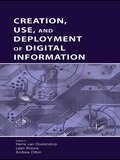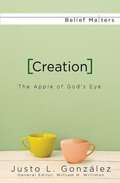- Table View
- List View
Creating the Conditions for School Improvement: A Handbook of Staff Development Activities
by David Hopkins Alma Harris Mel West Mel Ainscow Geoff Southworth John BeresfordFirst Published in 2001. Routledge is an imprint of Taylor & Francis, an informa company.
Creating the Conditions for Teaching and Learning: A Handbook of Staff Development Activities
by David Hopkins Alma HarrisFirst Published in 2001. Routledge is an imprint of Taylor & Francis, an informa company.
Creating the Curriculum (Understanding Primary Education Series)
by Dominic Wyse Ian Menter Moira Hulme Vivienne Baumfield Louise Hayward Bob Lingard David Egan Carmel Gallagher Kay Livingston Ruth LeitchIs there an ‘ideal’ primary school curriculum? Who should decide what the curriculum is? Should teachers have autonomy over how they teach? The curriculum is the heart of what teachers teach and learners learn: effective teaching is only possible with an effective curriculum. Yet in spite of its importance, there has been a crisis in curriculum that has been caused in large part by governments assuming direct control over the curriculum, assessment, and increasingly, pedagogy. Creating the Curriculum tackles this thorny issue head on, challenging student and practising primary school teachers to think critically about past and present issues and to engage with a new wave of curriculum thinking and development. Considering curriculum construction and its impact on teaching and learning in the four countries of the UK, key issues considered include: who should decide the curriculum, its aims and its values the extent to which issues in primary education swing back and forth Subjects versus thematic organisation, stages and phases, progression, breadth and balance prescription versus teacher autonomy the key features of effective classroom practice strategies for assessing the whole curriculum how language in the classroom influences curriculum design understanding curricula in the context of children’s social and personal circumstances creativity, curriculum and the classroom. Illustrated throughout with strategies and case studies from the classroom, Creating the Curriculum accessibly links the latest research and evidence with concrete examples of good practice. It is a timely exploration of what makes an effective and meanginful curriculum and how teachers can bring new relevance, motivation and powerful values to what they teach.
Creating the Effective Primary School
by Roger SmithA key role for primary school leaders is to develop strategies for promoting and ensuring high quality learning. This practical and accessible handbook has been written by an experienced primary leader, and will offer anyone seeking guidance on creating or maintaining a more effective primary school with a valuable and friendly resource. Extensive coverage in this book includes: * using organisation and leadership to create a positive ethos* developing good relationships and creating teams* managing the curriculum and raising pupil achievement* the role of targets and planning in raising achievement* fostering successful teaching and good classroom management and relationships* working with the inspection process* performance management* dealing effectively with stress and time management. Launching the new Kogan Page Primary Essentials series, this book will be welcomed by any primary leader who is seeking to develop their pupil's and their school's strengths and expectations.
Creating the Ethical Academy: A Systems Approach to Understanding Misconduct and Empowering Change
by Tricia Bertram GallantFor those who believe in the promise of higher education to shape a better future, this may be a time of unprecedented despair. Stories of students regularly cheating in their classes, admissions officers bending the rules for VIPs, faculty fudging research data, and presidents plagiarizing seem more rampant than ever before. If those associated with our institutions of higher learning cannot resist ethical corruption, what hope do we have for an ethical society? In this edited volume, higher education experts and scholars tackle the challenge of understanding why ethical misconduct occurs in the academy and how we can address it. The volume editor and contributing authors use a systems framework to analyze ethical challenges in common functional areas (e.g., testing and admissions, teaching and learning, research, fundraising, spectator sports, and governance), highlighting that misconduct is shaped by both individuals and the contexts in which they work, study, and live. The volume argues compellingly for colleges and universities to make ethics a strategic, institutional priority. Higher education researchers, students, and practitioners will find this volume and its application of empirical research, real-life examples, and illustrative case studies to be an inspiring and applicable read.
Creating the Future School (Student Outcomes And The Reform Of Education Ser.)
by Hedley BeareThis fascinating book is based on the changes to schooling that a five year-old, Angelica will see in her lifetime. It is divided into two parts: the first describes how schools are viewed by society; the second considers practical responses that schools can make to keep up with change. Creating the Future School predicts that the career of teaching will change and the work of the professional educator will differ significantly from what has been the traditional teaching role in schools of the twentieth century. The book addresses principals, senior members of school staff, teachers, governors and policy makers and aims to open up the reader's awareness to the profound shift in society and how society views its schools.
Creating the Future? The 1960s New English Universities (SpringerBriefs in Education)
by Ted Tapper Ourania FilippakouThis book examines the developments of the UK Higher Education system, from a time of donnish dominion, progressive decline and the increasing role of the market via the introduction of tuition fees. It offers a protracted empirical analysis of the seven new English universities of the 1960s: the Universities of East Anglia, Essex, Kent, Lancaster, Sussex, Warwick and York. It explores the creation of these universities and investigates how they each responded to a number of centrally-imposed initiatives for change in UK higher education that have emerged since their foundation. It discusses changes in system governance and how the Higher Education policies it generated have impacted upon a particular segment of the English university model. Divided into three parts, the book first deals with such topics as the control the University Grants’ Committee exercised in its heyday and how they initiated the launch of new universities. It then examines policy initiatives on government cuts on grants, research assessment exercises, quality assurance procedures and student tuition fees. The last part takes a broader approach to change by studying the significance and demise of Mission Groups, a changing system of Higher Education and more general changes regarding the state, the market and governance.
Creating the Global Classroom: Approaches to Developing the Next Generation of World Savvy Students
by Laurence PetersThe book examines how to begin to think like a global educator first by examining how our own histories and experiences have formed our own cultural and professional identities and second how the varied frames by which global education can be understood – pedagogical, ideological and cosmopolitan – have shaped the field. Laurence Peters connects theory and practice about global education relevant to cultivating global awareness in primary and secondary students. Rather than seeing global education as a special field separate from the other disciplines the author encourages integration of global perspectives into everything we do. Showcasing how global awareness is a developmental issue, dependent upon the student’s ability to step outside of their own place-based comfort zone, this volume lays out a roadmap of major challenges and issues around instilling this awareness in students. This book connects theory and practice about global education relevant to cultivating global awareness in primary and secondary students. From this foundation, the book engages with the challenge of integrating global perspectives within a crowded curriculum. By convincing students and teachers alike of global education’s centrality, thinking globally becomes an integral component of learning across subject areas and grade levels, and this work encourages students to exercise empathy for the other and to develop critical skills to see through media distortions and 'fake news' so they can better resist the tendency of politicians in our increasingly multicultural countries to divide people along racial and ethnic lines.
Creating the Health Care Team of the Future: The Toronto Model for Interprofessional Education and Practice
by Sioban Nelson Maria Tassone Brian David HodgesOne way to significantly improve the delivery of health care is to teach the health professionals who provide care to work together, to communicate with each other across professional boundaries, and to start to think and act like a team that has the patient at its center. The team-based care movement is at the heart of major changes in medical education and will become an element in the new accreditation standards.Through its Centre for Interprofessional Education, the pioneering approach in this area taken by the University of Toronto has attracted international attention. The role of the Centre for IPE, a formal partnership between the University of Toronto and the Toronto Academic Health Sciences Network, is to create a hub for the university and the many teaching hospitals where all core parties can be actively engaged in redesigning this new model of health care. In Creating the Health Care Team of the Future, Sioban Nelson, Maria Tassone, and Brian D. Hodges give a brief background of the Toronto Model and provide a step-by-step guide to developing an IPE program.
Creating the High Schools of Our Choice: A Principal's Perspective on Making High School Reform a Reality
by Tim WesterbergThis book provides strategies, tools, and examples to help high school principals achieve the goals put forward in the No Child Left Behind legislation.With its clear examples of best practices in leadership, personalization, and strategic use of data, it will show you how to achieve your school's academic mission.
Creating the Market University: How Academic Science Became an Economic Engine
by Elizabeth Popp BermanWhen science adopts the logic of the marketAmerican universities today serve as economic engines, performing the scientific research that will create new industries, drive economic growth, and keep the United States globally competitive. But only a few decades ago, these same universities self-consciously held themselves apart from the world of commerce. Creating the Market University is the first book to systematically examine why academic science made such a dramatic move toward the market. Drawing on extensive historical research, Elizabeth Popp Berman shows how the government—influenced by the argument that innovation drives the economy—brought about this transformation.Americans have a long tradition of making heroes out of their inventors. But before the 1960s and '70s neither policymakers nor economists paid much attention to the critical economic role played by innovation. However, during the late 1970s, a confluence of events—industry concern with the perceived deterioration of innovation in the United States, a growing body of economic research on innovation's importance, and the stagnation of the larger economy—led to a broad political interest in fostering invention. The policy decisions shaped by this change were diverse, influencing arenas from patents and taxes to pensions and science policy, and encouraged practices that would focus specifically on the economic value of academic science. By the early 1980s, universities were nurturing the rapid growth of areas such as biotech entrepreneurship, patenting, and university-industry research centers.Contributing to debates about the relationship between universities, government, and industry, Creating the Market University sheds light on how knowledge and politics intersect to structure the economy.
Creating the Path to Success in the Classroom: Teaching to Close the Graduation Gap for Minority, First-Generation, and Academically Unprepared Students
by Kathleen F. GabrielThis is a book for all faculty who are concerned with promoting the persistence of all students whom they teach.Most recognize that faculty play a major role in student retention and success because they typically have more direct contact with students than others on campus. However, little attention has been paid to role of the faculty in this specific mission or to the corresponding characteristics of teaching, teacher-student interactions, and connection to student affairs activities that lead to students’ long-term engagement, to their academic success, and ultimately to graduation.At a time when the numbers of underrepresented students – working adults, minority, first-generation, low-income, and international students – is increasing, this book, a companion to her earlier Teaching Underprepared Students, addresses that lack of specific guidance by providing faculty with additional evidence-based instructional practices geared toward reaching all the students in their classrooms, including those from groups that traditionally have been the least successful, while maintaining high standards and expectations.Recognizing that there are no easy answers, Kathleen Gabriel offers faculty ideas that can be incorporated in, or modified to align with, faculty’s existing teaching methods. She covers topics such as creating a positive and inclusive course climate, fostering a community of learners, increasing engagement and students’ interactions, activating connections with culturally relevant material, reinforcing self-efficacy with growth mindset and mental toughness techniques, improving lectures by building in meaningful educational activities, designing reading and writing assignments for stimulating deep learning and critical thinking, and making grade and assessment choices that can promote learning.
Creating the Practical Man of Modernity: The Reception of John Dewey’s Pedagogy in Mexico (Routledge International Studies in the Philosophy of Education)
by Victor J. RodriguezFocused on the appropriation of John Dewey’s ideas on progressive education in revolutionary Mexico, this book reconsiders the interpretation and application of Dewey’s ideas in the world. Rodriguez examines the use of Dewey in Mexico’s state-building projects as a vantage point to assess the global impact of Dewey’s pedagogy. As these projects converged with Dewey’s desire to employ education as a tool for effective social change, Rodriguez understands Dewey not just as a philosopher but as an integral part of the Americas’ progressive movement and era.
Creating the Reflective Habit: A Practical Guide for Coaches, Mentors and Leaders
by Michelle LucasReflection is a critical skill which can enhance the quality of our professional and domestic lives. Yet in a world of "busy," reflective practice often falls to the bottom of the list. We are not alone in the struggle to use the pause button well. This book is here to help. The book offers a practical toolkit which shows you how to create a sustainable reflective habit. We begin by exploring the meaning and territory of reflection, drawing from the literature to provide context and understanding. The following chapters contain prompts and exercises which will appeal to different processing preferences. The intention throughout this book is firstly, to show that reflection means so much more than journaling, and secondly, to encourage an appetite for experimentation that results in a desire to reflect on a regular and sustainable basis. We invite you into an immersive experience, playing with the multitude of reflective possibilities on offer. It is only through repeated trial and error, enlightenment and frustration that we will come to create our own reflective habit. Written by a coach and coach supervisor, this practical book is an invaluable resource for helping practitioners, but will also be immensely helpful to anyone and everyone who wants to get their pause button in good working order. The book also provides Learning & Development professionals with a suite of tools and materials to help build the reflective practice skill set in their organisation.
Creating the Suburban School Advantage: Race, Localism, and Inequality in an American Metropolis (Histories of American Education)
by John L. RuryCreating the Suburban School Advantage explains how American suburban school districts gained a competitive edge over their urban counterparts. John L. Rury provides a national overview of the process, focusing on the period between 1950 and 1980, and presents a detailed study of metropolitan Kansas City, a region representative of trends elsewhere.While big-city districts once were widely seen as superior and attracted families seeking the best educational opportunities for their children, suburban school systems grew rapidly in the post–World War II era as middle-class and more affluent families moved to those communities. As Rury relates, at the same time, economically dislocated African Americans migrated from the South to center-city neighborhoods, testing the capacity of urban institutions. As demographic trends drove this urban-suburban divide, a suburban ethos of localism contributed to the socioeconomic exclusion that became a hallmark of outlying school systems. School districts located wholly or partly within the municipal boundaries of Kansas City, Missouri, make for revealing cases that illuminate our understanding of these national patterns.As Rury demonstrates, struggles to achieve greater educational equity and desegregation in urban centers contributed to so-called white flight and what Senator Daniel Patrick Moynihan considered to be a crisis of urban education in 1965. Despite the often valiant efforts made to serve inner city children and bolster urban school districts, this exodus, Rury cogently argues, created a new metropolitan educational hierarchy—a mirror image of the urban-centric model that had prevailed before World War II. The stubborn perception that suburban schools are superior, based on test scores and budgets, has persisted into the twenty-first century and instantiates today's metropolitan landscape of social, economic, and educational inequality.
Creating the University of the Future: A Global View on Future Skills and Future Higher Education (Zukunft der Hochschulbildung - Future Higher Education)
by Ulf-Daniel Ehlers Laura EigbrechtThis open access publication presents a global panorama of institutional strategies, academic programs, scholarly insights as well as teaching and learning practices taking stock of the Future Skills Turn taking place in higher education. Future Skills have evolved to be one of the most important priorities for the development of higher education institutions globally. Students and graduates learn how to acquire Future Skills for their lives and careers and for shaping societies towards more sustainable futures. Institutions, teachers and policy makers gain insights into strategies to shape the Future Skills Turn in higher education and create the University of the Future.
Creating with Mobile Media
by Marsha BerryThis book investigates the convergence between locative, mobile and social media in order to show how people use mobile media for their creative practice--creative writing, photography, video and filmmaking. The central thematic focus of this book explores how mobile media has created new opportunities and contexts for creative practitioners. It draws together creative practice research with non-representational theory and digital ethnography to provide a fresh perspective on the place mobile media has in our everyday creative lives. Fictionalized and semi-fictional vignettes are used to present empirical material taken from fieldnotes and interviews to demonstrate how new forms and genres of art making have arisen because of the affordances of mobile media. The chapters in this volume have been arranged into a sequence according to the kinds of actions that make up various creative practices.
Creating, Grading, and Using Virtual Assessments: Strategies for Success in the K-12 Classroom
by Karen L. Sanzo Kate Wolfe Maxlow James R. MaxlowThis book provides a variety of strategies for creating, grading, and using assessments in the virtual setting. With more teaching and learning taking place online, teachers are adjusting their strategies for creating, grading, and using virtual assessments. This strategies-based book helps you understand the key challenges and solutions to delivering virtual assessments, including use of quizzes, digital worksheets, grading, preventing cheating, and considerations of equity, quality, choice, and efficiency. Designed so that you can pick it up and start reading from any chapter, this book covers topics such as: how to create, grade, and use traditional forms of assessment in the virtual space; how to leverage discussion for meaningful learning in the virtual classroom; how to create, grade, and use virtual performances and projects; digital tools that may be helpful in engaging with and assessing students in the virtual environment. Based on research and full of practical examples, this book guides educators, professional learning teams, and whole schools in implementing a successful virtual assessment plan for all types of intended learning objectives.
Creating, Managing, and Editing Multi-Authored Publications: A Guide for Scholars (Insider Guides to Success in Academia)
by Susan Carter Claire Aitchison Cally GuerinProviding a detailed guide to editing multi-authored publications such as a collection of papers, a special issue of a journal or an academic blog, this must-read book canvases the benefits and challenges of undertaking editorial work.This compact book is designed to guide new scholarly (co-)editors through the complex journey of editing. It provides considered and detailed advice on the less well-known scholarly practices and the processes, challenges and rewards of this work, throughout the process from start to finish, with a focus on ensuring successful outcomes for all.Practical advice is delivered throughout this book, mapped against the wider context of academic life and values, covering topics such as: Considering and preparing for how scholarly editing work fits with your academic career, your own values and your aspirations Building collaborative relationships with colleagues participating in the project, from publishers and co-editors to authors, reviewers and readers; and Understanding the specific requirements of edited monographs, journal special issues and multi-authored blogs, including insights into what can go wrong and how to manage recovery Offering critical insights into the realities of scholarly editing, this is an essential read for any academic who plans to undertake a scholarly editing project.The ‘Insider Guides to Success in Academia’ offers support and practical advice to doctoral students and early-career researchers. Covering the topics that really matter, but which often get overlooked, this indispensable series provides practical and realistic guidance to address many of the needs and challenges of trying to operate, and remain, in academia.These neat pocket guides fill specific and significant gaps in current literature. Each book offers insider perspectives on the often implicit rules of the game – the things you need to know but usually aren’t told by institutional postgraduate support, researcher development units, or supervisors – and will address a practical topic that is key to career progression. They are essential reading for doctoral students, early-career researchers, supervisors, mentors, or anyone looking to launch or maintain their career in academia.
Creating, Sustaining, and Enhancing Purposeful School-University Partnerships: Building Connections Across Diverse Educational Systems
by Michelle J. Eady Corinne A. GreenCreating, Sustaining, and Enhancing Purposeful School-University Partnerships: Building Connections Across Diverse Educational Settings explores third space school-university partnerships that are connected to initial and ongoing teacher education, adding to an important literature base with a focus on how these partnerships can be created, sustained, and enhanced, why they are important, and who they can benefit. Emeritus Professor Kenneth M. Zeichner, author of a seminal work on the third space in teacher education, provides a preface for this edited book that brings together examples of purposeful school-university partnerships authored by academics and practitioners in Australia, Canada, Germany, Ireland, Sweden, the United States of America, Nepal, and Bhutan. This international cohort of contributing authors explores the life cycles and phases of school-university partnerships, the factors that enable and constrain them, and the effects they have on those involved through case studies, narrative vignettes, action research, and longitudinal research. The accounts shared throughout this book are thoughtful contributions to an expanding body of knowledge delving into the significance and importance of meaningful collaborations that build connections across all aspects of education.
Creation Care: A Biblical Theology Of The Natural World (Biblical Theology For Life Ser.)
by Douglas J. Moo Jonathan Lunde Jonathan A. MooFrom Genesis to Revelation, the Bible reveals a God whose creative power and loving care embrace all that exists, from earth and sky and sea to every creeping, crawling, swimming, and flying creature. Yet the significance of the Bible’s extensive teaching about the natural world is easily overlooked by Christians accustomed to focusing only on what the Bible says about God’s interaction with human beings.In Creation Care, part of the Biblical Theology for Life series, father and son team Douglas and Jonathan Moo invite readers to open their Bibles afresh to explore the place of the natural world within God’s purposes and to celebrate God’s love as displayed in creation and new creation. Following the contours of the biblical storyline, they uncover answers to questions such as:What is the purpose of the non-human creation?Can a world with things like predators, parasites, and natural disasters still be the ‘good’ world described in Genesis 1?What difference does the narrative of the ‘Fall’ make for humankind’s responsibility to rule over other creatures?Does Israel’s experience on the land have anything to teach Christians about their relationship with the earth?What difference does Jesus make for our understanding of the natural world?How does our call to care for creation fit within the hope for a new heaven and a new earth?What is unique about Christian creation care compared with other approaches to ‘environmental’ issues?How does creation care fit within the charge to proclaim the gospel and care for the poor?In addition to providing a comprehensive biblical theology of creation care, they probe behind the headlines and politicized rhetoric about an ‘environmental crisis’ and climate change to provide a careful and judicious analysis of the most up-to-date scientific data about the state of our world. They conclude by setting forth a bold framework and practical suggestions for an effective and faithful Christian response to the scriptural teaching about the created world.But rather than merely offering a response to environmental concerns, Creation Care invites readers into a joyful vision of the world as God’s creation in which they can rediscover who they truly are as creatures called to love and serve the Creator and to delight in all he has made.
Creation and the Persistence of Evil
by Jon D. LevensonThis paperback edition of Creation and the Persistence of Evil brings to a wide audience one of the most innovative and meaningful models of God for this post-Auschwitz era. In a thought-provoking return to the original Hebrew conception of God, which questions accepted conceptions of divine omnipotence, Jon Levenson defines God's authorship of the world as a consequence of his victory in his struggle with evil. Classic doctrines of God's creation of the universe from the void do not do justice to the complexity of that hard-fought battle, which is uncertain in its outcome. Levenson traces this more flexible conception of God to the earliest Hebrew sources. He argues that Genesis 1 does not describe the banishment of evil but the attempt to contain the menace of evil in the world, a struggle that continues today.
Creation and the Second Coming
by Dr Henry M. MorrisPossibly the only book of its kind, Creation and the Second Coming captivates the reader by linking our origins with our destiny. Blending biblical stories like Noah andJesus teaching His disciples, Dr. Henry Morris weaves an intriguing resource for prophecy and creationism buffs.
Creation, Use, and Deployment of Digital Information
by Herre Van Oostendorp Leen Breure Andrew DillonThe aim of this book is to present results of scientific research on how digital information should be designed and how artifacts or systems containing digital content should maximize usability, and to explain how context can influence the nature and effectiveness of digital communication. Using a philosophical, cognitive, and technical standpoint, the book covers the issue of what digital information actually is. The text also presents research outcomes from the perspective of research in information science--broadly construed--a term now used to cover a range of theoretical and practical approaches.Creation, Use, and Deployment of Digital Information is broken down into three parts:*Part I presents information on how electronic documents can be realized--the complexities, alternatives, functions, and restrictions are treated here.*Part II discusses how human beings process information and how technical solutions can satisfy human restrictions.*Part III treats the context in which digital information processing and deployment takes place.The book has much to offer to academics in many disciplines, including science, the arts, psychology, education, and the information and computing sciences.
Creation: The Apple of God's Eye (Belief Matters)
by Justo L. GonzalezHow and why God loves us—God's good creationThis book will talk about the doctrine of creation and invite us to look closely at who God is and who we are in relationship with God. As people of faith, we believe that our gracious God created all there is, but does that also mean that God also created evil? How does creation jive with what scientists are telling us about the origin of the universe? What does the doctrine of creation tell us about what we call "the creation," that is, the world, its value, purpose, etc? How does understanding the world as God’s creation teach us about our role in creation care?The Bible tells us that God created the heavens and earth, but does that deny the science of the Big Bang? What does believing that God is the Creator say about how God loves, redeems, and sustains us today or does creation say something only about the past? What about the "new creation''? Does this have anything to do with the old creation? Does it mean simply that God is so tired of the rebelliousness of creation that it seems best to erase the present one and start anew? Or is there a connection between the two?What does the doctrine of creation say about us? Aren’t we created in God’s image and aren’t we part of the good creation of a loving God? If so, why is there evil and rebelliousness in us? Where does our ill-will, our desire to do evil, come from? Is there freedom of the will or are all things preordained by God? Just how detailed is God’s plan for us?While no one author can deal with all these questions, this book will help us begin the conversation and gain new understanding of how the doctrine of creation can help us address these very human and timeless questions.Series Description:Belief Matters: How to Love God with Your Mind is a series of books written by widely recognized authors who will help readers think more clearly about their faith and better understand their beliefs, so that they can live more faithfully. These books will also help readers become aware of thoughtful resources and conceptual frames of reference that not only will deepen their faith, but also help them better understand what we say and do in Church. Conversational in tone, these books are reflections on major theological topics and are suitable for a 4-session individual or group study. The intent of the series is to help readers feel as though they are sitting, having coffee as authors share their "take" and show that by thinking more clearly about the faith, persons can love God more fully, live with confidence, and change the world.
